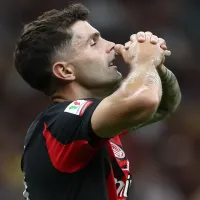Irrespective of the attitude many critics demonstrate, Major League Soccer (MLS) is a uniquely American success story. In a land that was long a professional soccer wasteland with the exception of short periods of achievement that quickly collapsed, MLS has been able to sustain itself and build an impressive product by any truly objective standard over the course of the last two decades. But now, MLS is not just a uniquely American success story, but a Canadian one as well.
Canada’s passion for soccer cannot be judged by failures of its men’s national team. Nor can it be merely judged by the popularity of support for European clubs teams in the country. For years, Vancouver and Montreal had wildly successful and well-supported minor league teams that propped up the United States lower divisions. These were leagues where the franchise failure rate was over 75% between 1996 and 2010. But Vancouver and Montreal routinely sold out their stadiums, won titles and developed players that would achieve success all over the world.
But despite Vancouver and Montreal’s accomplishments, when MLS decided to expand to Canada in 2007, it was Toronto, North America’s most cosmopolitan urban center that was the first Canadian entry to the elite league. The choice made sense as Toronto instantly showed MLS fans from the United States how to support a club in a European manner. While the Portland Timbers of the second division USL had demonstrated this to anyone who bothered to pay attention, Toronto FC brought this change to MLS.
Within a few years, MLS 2.0 was in full swing with the “Toronto FC effect.” A more organic and international feel began to sweep the league and in this process the lower division Vancouver Whitecaps and Montreal Impact were brought up to the top-flight MLS. With both clubs came legions of already established fans and a club culture many existing MLS teams would envy. The Whitecaps and Impact also brought a fully-developed professional setup to MLS including Vancouver’s renowned residency program. Unlike many American pro clubs who didn’t discover the need to develop players or forge lasting partnerships in the soccer community until recently, both Vancouver and Montreal created an infrastructure for success, and with it attracted fans of other sports to become fans of lower-division pro soccer.
But since the Canadian clubs had such established support, strong infrastructure and in the case of Montreal and Vancouver, success at the minor league level, fan patience was not a virtue. The expectation for both clubs was instant success. Many Vancouver and Montreal fans did not adapt to the sorts of limitations and rules placed upon the clubs by MLS well initially. In the lower divisions, both clubs routinely were able to outspend other teams and hoard top players – but MLS has very strict rules against such things happening. However, after a year or two, most Whitecaps and Impact supporters understood MLS better and accepted how it operated.
Toronto FC fans were certainly more patient initially, but when the combination of high-ticket prices, an artificial turf and failure in seeking an MLS playoff spot became the norm, TFC fans reached a boiling point. The organic nature of the Toronto FC fanbase allowed for mobilization of supporters and the organization got the message. In the past two seasons, Toronto FC has spent more money to try and build a winning team than any club in the history of North American club soccer since the New York Cosmos in the 1970’s. Yet it took until last week for Toronto to finally clinch its first playoff berth, in the club’s ninth season. But now with TFC playing on grass in an expanded facility and having finally reached the postseason, it seems the sky is the limit for the lone professional club representing North America’s most international city.
Meanwhile Vancouver and Montreal are doing quite nicely. Both clubs will also participate in this season’s MLS Cup Playoffs. This will be especially rewarding to long-term supporters who have witnessed both clubs transition from lower league juggernauts to struggling MLS clubs climbing uphill against established sides. In the meantime, both organizations have committed themselves to developing Canadian talent, and for years the bulk of the national team has come from players that have passed through one or both clubs.
About midway between Montreal and Toronto, another success story is brewing in Canadian soccer. The mantle of a lower division powerhouse vacated by the Impact and Whitecaps has now been filled by the Ottawa Fury FC. The club, a long-established semi-pro fourth division side, placed a team in the NASL which is the second division in North America last season. In just the second year of competition for the club’s professional team, the Fury FC is likely to win the NASL’s Fall Season and could be the top overall seed in the league’s postseason tournament. Like the Impact and Whitecaps, Fury FC has a long-standing commitment to developing and promoting Canadian players.
Toronto FC’s commitment to developing Canadian players has often been questioned by fans throughout the nation. However, the increased visibility the club’s success and ability to attract well-known players has yielded surely will help grow Canadian soccer. Television ratings for Major League Soccer games are routinely higher in Canada than in the United States, partly owing itself to the footprint of Toronto FC and the long-standing support Montreal and Vancouver have created.
With four Canadian clubs participating in postseason in the top two divisions of North American club soccer, Canada’s time has finally come.
From the perspective of someone who has watched and admired the commitment of soccer fans in Canada throughout the last two decades, I could not be happier for them. Success in Canada was built organically and over time with the type of heavy lifting and heartbreak that many American soccer fans are unaccustomed to. All four clubs have earned their place in the sunshine this postseason.














